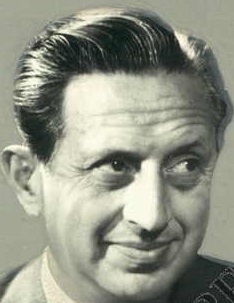A Quote by Samuel Pepys
Music [is] a science peculiarly productive of a pleasure that no state of life, publick or private, secular or sacred; no difference of age or season; no temper of mind or condition of health exempt from present anguish; nor, lastly, distinction of quality, renders either improper, untimely, or unentertaining.
Related Quotes
Lastly, I would address one general admonition to all: that they consider what are the true ends of knowledge, and that they seek it not either for pleasure of the mind, or for contention, or for superiority to others, or for profit, or fame, or power, or any of these inferior things: but for the benefit and use of life; and that they perfect and govern it in charity.
The longer I live the more I am convinced that neither age nor circumstance needs to deprive us of energy and vitality. We are at last awakening to the close relationship between religion and health. . . .our physical condition is determined very largely by our emotional condition, and our emotional life is profoundly regulated by our thought life.
An immoderate fondness for dress, for pleasure, and for sway, are the passions of savages; the passions that occupy those uncivilized beings who have not yet extended the dominion of the mind, or even learned to think with the energy necessary to concatenate that abstract train of thought which produces principles.... that women from their education and the present state of civilized life, are in the same condition, cannotbe controverted.
Pathology is a relatively easy thing to discuss, health is very difficult. This, of course, is one of the reasons why there is such a thing as the sacred, and why the sacred is difficult to talk about, because the sacred is peculiarly related to the healthy. One does not like to disturb the sacred, for in general, to talk about something changes it, and perhaps will turn it into a pathology.
The hunting season is sacred. It's been sacred in my life since birth. I've never missed a hunting season in 64 years. It's my calling, it's what I am, it's how I was designed, it's what inspires, fascinates, satisfies, and drives my quality of life. And I know that it brings me such joy, and it does such a critical and essential performance for nature and for the environment, that I am dedicated and have been for over 40 years to promoting and celebrating that. I never defend it. I always promote and celebrate it.
There are two very natural propensities which we may distinguish in the most virtuous and liberal dispositions, the love of pleasure and the love of action. If the former is refined by art and learning, improved by the charms of social intercourse, and corrected by a just regard to economy, to health, and to reputation, it is productive of the greatest part of the happiness of private life.
Our answer is the world's hope; it is to rely on youth. The cruelties and the obstacles of this swiftly changing planet will not yield to obsolete dogmas and outworn slogans. It cannot be moved by those who cling to a present which is already dying, who prefer the illusion of security to the excitement and danger which comes with even the most peaceful progress. This world demands the qualities of youth: not a time of life but a state of mind, a temper of the will, a quality of imagination, a predominance of courage over timidity, of the appetite for adventure over the life of ease...





































